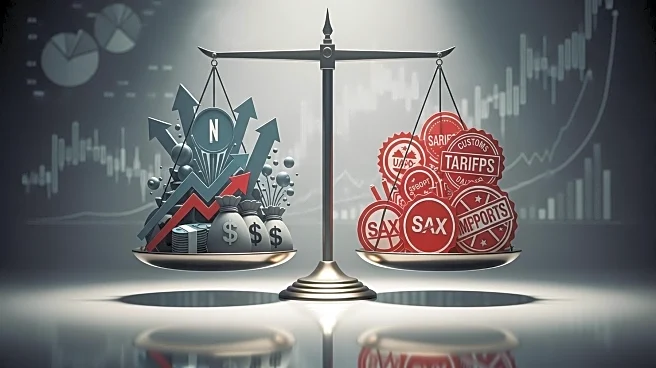What is the story about?
What's Happening?
US consumer inflation increased to 2.9% in August, driven by President Trump's tariffs affecting the economy. The Consumer Price Index (CPI) rose 0.4% month-on-month, with core inflation at 3.1% year-over-year. Despite the inflation rise, analysts expect the Federal Reserve to proceed with an interest rate cut next week. The Fed's focus is shifting towards concerns about a labor market slowdown, as employment weakens. The August CPI increase was influenced by higher costs in food, energy, and shelter.
Why It's Important?
The inflation rise highlights the impact of tariffs on consumer prices, raising questions about their long-term effects. The Federal Reserve's anticipated rate cut aims to boost the economy amid employment concerns, despite inflation pressures. This decision could affect borrowing costs, consumer spending, and business investments. The Fed's actions are crucial in navigating economic challenges posed by tariffs and a slowing job market, impacting overall economic growth and stability.
What's Next?
The Federal Reserve is expected to lower the benchmark lending rate by 25 basis points in its upcoming policy meeting. This move, influenced by President Trump's pressure, marks the first rate cut since December. The Fed's decision will be closely monitored for its impact on inflation control and economic stimulation. Economists are assessing whether tariffs will lead to persistent price increases or a one-off effect, influencing future policy decisions.















